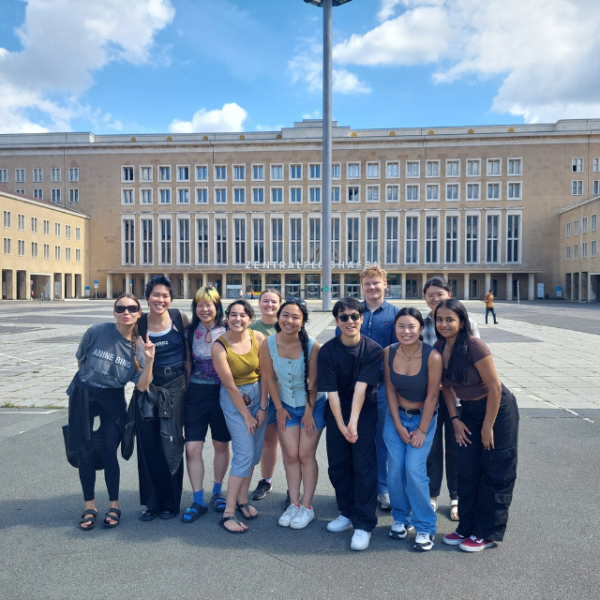
Cologne, Germany
Introduction to Survey Design
When:
11 August - 15 August 2025
Credits:
4 EC
Read more
Social Sciences
When:
18 August - 22 August 2025
School:
Summer School in Social Sciences Methods
Institution:
Università della Svizzera italiana
City:
Country:
Language:
English
Credits:
0 EC
Fee:
700 CHF

Workshop contents and objectives
Longitudinal data observe the same person, firm or other entity at different points in time. This type of data is crucial for understanding stability and changes over time. In addition, longitudinal data give insights into causal mechanisms.
In this course, we will introduce and apply tools for organizing and analyzing this complex type of data. For data analysis, we focus on fixed effects models as the basic tool for estimating relationships between variables. Fixed effects models analyze changes within units over time (rather than comparing levels of different units), therefore implicitly controlling for unobserved time constant variables. For example, fixed effects compare a person before and after marriage, whereas conventional regression models (cross-sectional OLS) compare the happiness of married and unmarried people at the same point in time and thus suffer from bias from unobserved variables.
Starting with how to organize longitudinal data and how to measure stability and change, the course focuses on fixed effects models with the aim of identifying causal effects. We then present and compare different methods of analysis (pooled OLS models, random effect models, growth models, cross-lagged models) for longitudinal data. The course will provide participants with the knowledge and skills to understand the mechanisms behind the different approaches, to evaluate their strengths and limitations, and to select the appropriate approach for their specific research question and data.
The examples and exercises in the course are based on real data from the Swiss Household Panel. In addition to statistical tools, we will address methodological challenges related to data quality, such as nonresponse and attrition, survey modes, unexpected effects during data collection, or limited number of observation waves, so that participants can apply these models effectively to their own research.
Workshop design
In both the morning and the afternoon sessions, we will provide a sound understanding of each model as well as application examples and hands-on exercises. There will also be time to discuss participants’ research projects and ideas related to the methods in the course. Participants are encouraged to apply the longitudinal methods to their own research questions. As there are two instructors, there will be time available to discuss and solve individual problems.
Detailed lecture plan (daily schedule)
Day 1.
a) Introducing longitudinal data and application examples (based on the Swiss Household Panel)
b) Longitudinal data preparation, exploring longitudinal data, descriptive analysis, attrition analysis, variance decomposition
Day 2.
a) Regression models with longitudinal data: Pooled OLS, pooled logistic regression, change-score models
b) Approaching causality with longitudinal data using Fixed Effects and First Difference models
Day 3.
a) Multilevel models with longitudinal data: Random effects, Hybrid model
Day 4.
a) Multilevel model for growth
b) Possibility for participants to present and discuss their research project, or data analysis in the group
Day 5.
a) Outlook to additional longitudinal models: Cross-lagged models, dynamic models, missing data
b) Wrap-up and discussion/question round
Class materials
The compendium “Stata Data Management”, which provides an introduction into longitudinal data analysis based on data from the Swiss Household Panel.
Prepared student data sets with example syntax and exercises. Power Point presentations.
A selection of application examples of longitudinal data analysis from scientific journals in social science (sociology, psychology, economics and political science).
**The Summer School cannot grant credits. We only deliver a Certificate of Participation, i.e. we certify your attendance.**
If you consider using Summer School workshops to obtain credits (ECTS), you will have to investigate at your home institution (contact the person/institute responsible for your degree) to find out whether they recognise the Summer School, how many credits can be earned from a workshop/course with roughly 35 hours of teaching, no graded work, and no exams.
Make sure to investigate this matter before registering if this is important to you.
Oliver Lipps & Ursina Kuhn
graduate students, doctoral researchers, early career researchers, experienced researchers
Prerequisites
We will use the Stata software and assume some knowledge of Stata with cross-sectional data. For students not sufficiently proficient in Stata we offer an online two-day preparatory course shortly before the workshop introducing Stata. Experienced R-users can conduct the exercises with R. We will provide syntax for R users, but we will only discuss syntax in Stata
Fee
700 CHF, Reduced fee: 700 Swiss Francs per weekly workshop for students/postdoctoral researchers (requires proof of student/postdoc status). To qualify for the reduced fee, you are required to send a copy of an official document that certifies your current student status or a letter from your supervisor stating your actual position as a doctoral or postdoctoral researcher. Send this letter/document by e-mail to methodssummerschool@usi.ch.
Fee
1100 CHF, Normal fee: 1100 Swiss Francs per weekly workshop for all others.
When:
18 August - 22 August 2025
School:
Summer School in Social Sciences Methods
Institution:
Università della Svizzera italiana
Language:
English
Credits:
0 EC

Cologne, Germany
When:
11 August - 15 August 2025
Credits:
4 EC
Read more

Berlin, Germany
When:
26 July - 23 August 2025
Credits:
6 EC
Read more

Cologne, Germany
When:
23 July - 24 July 2025
Credits:
0 EC
Read more